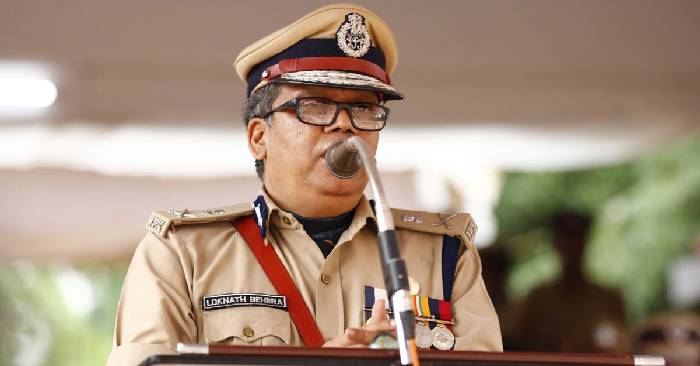Behera’s 36-year-long innings in the Indian Police Service comes to an end on Wednesday

THIRUVANANTHAPURAM: Squash fanatic, painter, photographer, and technophile. Loknath Behera, the state police chief, has donned numerous hats during his life. But it was in the field of criminal investigation that he had received the majority of his accolades and criticism.
On Wednesday, Behera’s 36-year career in the Indian Police Service will come to an end when he steps down as state police chief and hands over the baton to his successor, who will be chosen during a cabinet meeting scheduled for the morning.
The Odisha native also served in the CBI and the NIA, where his investigative skills helped solve a number of intriguing cases. Behera’s ascension to the position of the chief cop was not simple. After Pinarayi Vijayan took office in 2016, he was appointed state police head. Indeed, it was reported that the first file Pinarayi signed after returning from New Delhi, where he visited Prime Minister Narendra Modi, was that of Behera’s appointment, which sparked rumors and spurred critics to characterize him as a link between Modi and Pinarayi.
The first period ended on May 6, 2017, when he was forced to quit the office to make room for TP Senkumar, whose application for the position had been approved by the Supreme Court.
Senkumar stepped down on June 30, 2017, and Behera was reassigned to the chair. The nearly five-year tenure was marked by periodic controversies, making it one of the longest for a state police chief in Kerala. Multiple encounters that resulted in the deaths of seven Maoist cadres, serious flaws in investigations into the deaths of Walayar girl siblings and Palathayi minor girl rape case, and invoking UAPA against two college students at Pantheerankavu in Kozhikode sparked controversies that even called into question Behera’s policing style.
Due to the tough stance taken by senior IAS officers, the idea to set up police commissioners in Kochi and Thiruvananthapuram, which would have granted police sweeping powers, was unable to materialise. When the Covid issue enveloped the state last year, the police’s authority in the government was on show. All important responsibilities for handling the epidemic were delegated to the police, which had previously been the responsibility of the tax and health departments.
Behera’s main supporter, according to a former high-ranking bureaucrat, was the CM, who stayed by him like a rock whenever he faced troubles. “It is not an easy job to be at the helm for five years without much conflict with the administration. “Behera played it safe,” the officer explained. His detractors claim that the safe-play has harmed the department’s reputation.
“If you work for five years without having any disagreements with the government, that says a lot about the police chief’s mindset. “Behera has never spoken up for himself and has always followed the CM’s orders,” a former police chief stated.
There were also times when Behera showed his unwavering resolve. Activist Jomon Puthenpurackal recalled that rape-accused Bishop Franco Mulakkal was detained on Behera’s severe instruction. “On such matters, he took a firm stance. Behera showed resolve and ensured the bishop was arrested after the CM gave him full operational freedom,” he said.
B R P Bhaskar, a human rights campaigner, claims that the flaws being attributed to individual policemen are actually flaws established in the police system. “The sad part is that cops with good social backgrounds do nothing to prevent power abuse. In many occasions, the police employ excessive force in response to the threats they are confronted with. “An example is how the Kerala police handled Maoist cases,” he continued.






